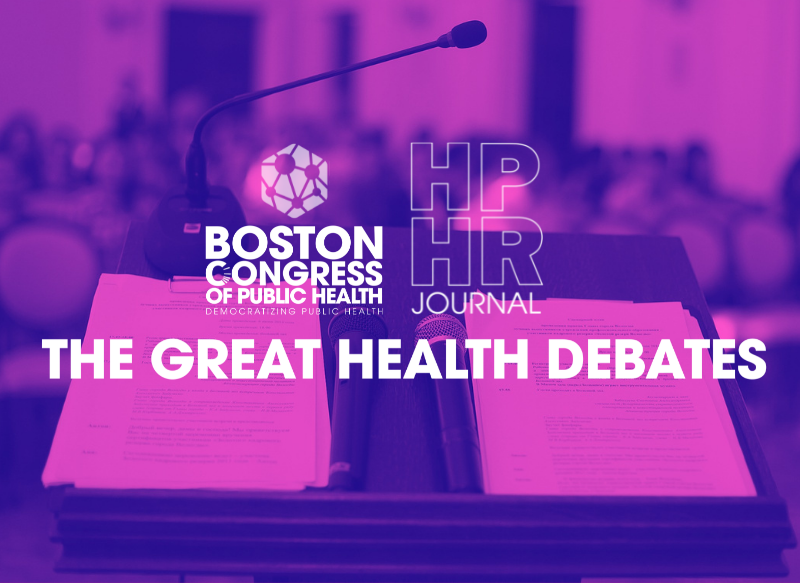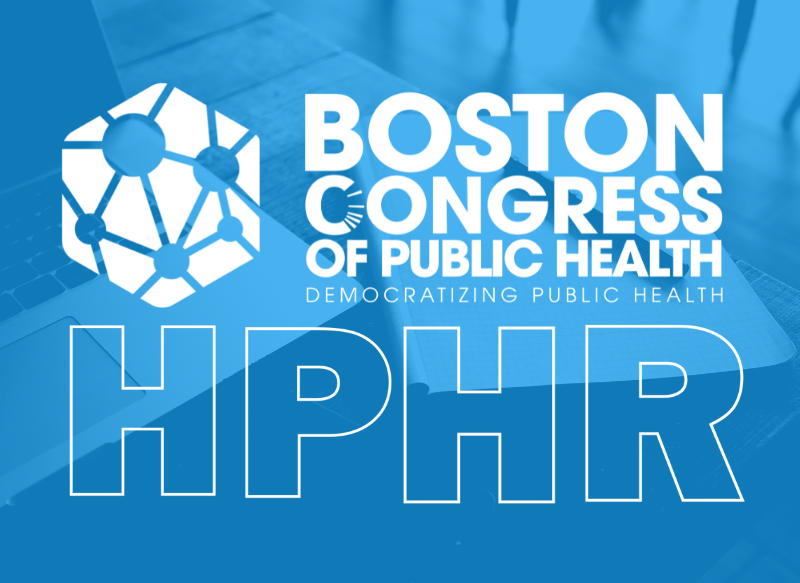Here is an edited transcript of the podcast.
Note: The following is a story about an experience I had involving violence in the workplace. This violence was fueled by racism and ableism as is often perpetuated in the nonprofit industrial complex. Please practice self care and community care as you listen.
Storytime:
Before the pandemic, I was a full time employee at a nonprofit organization in Iowa. I did advocacy work across the state through educational programming such as workshops, and conferences, and I also provided direct support to marginalized community members who needed help navigating healthcare, educational, legal, and other spaces. Finding social support or just to have someone to talk to about what they were facing general were also reasons why people would seek us out. These are all things I had done in previous employment and volunteer experiences. I made many new connections with new people, gained influence, forged new friendships, and learned a lot. Up until the last few months of my employment there, I truly enjoyed my job. Though, again, that is: up until the last few months.
Let’s go back a bit. The office I worked in was a small one and I was the only Black employee among white colleagues. Nonetheless, for the most part we all got along well, all except one person.
Now, I could certainly drop the name of the organization and the people involved, but then I don’t think this story would have the same impact. Too often upon hearing these sort of stories, the tendency is to shake heads and wag fingers at the behaviors of others and pretend not to be part of the problem. Folks don’t take the time to reflect on their own workplace, their own relationships, or their own behaviors. I don’t want people using my story to do this. I want everyone listening to know that if you hear or read anything in this story that sounds familiar, that’s because without direct intervention, these types of things have, are, and/or will happen in whatever space you are thinking of. The lack of institutional and cultural reform to prevent it ensures this. This story could reflect any workplace in the country. So from here on out I’m going to refer to the org as “The Liberal Agenda” and to that one aforementioned person that was determined not to get along with me as “That White Woman”as a homage to the way she wielded her white womanhood as a weapon against me. We’ll talk more about that later.
Going back to the story, the first time I got the feeling that something was up with That White Woman was during a workshop. There were multiple workshops throughout the day and she set up photoshoots for the participants during my workshop on implicit bias and guilt – that kind of guilt that shows up when you’re first realizing your privileges and biases. She informed me (during the workshop) that she set the shooting up during my session. She asked if I was ok with that. This being the first I had heard about it, I replied “No, but I’ll make it work”. “Well there isn’t any other choice!” She said sharply. And at this point, I thought to myself, “Okay, we’ve all had a very stressful day, maybe this is just a stress reaction. I’m gonna go ahead and let it go for now and maybe address it later since this is the first time I’ve had a negative interaction with her and my response to her won’t exactly be a kind one cuz that kinda pissed me off just now”. I choose to pick my battles to conserve energy (or spoons, as we in the disability community like to describe it) while filing away incidents like this in my mind to look for patterns later. Additionally, a few months before, she had given me advice on being the new employee at the org since she was in my shoes directly before I came on and I appreciated her help and learning from her. So at this point in time, I decided to give her a pass. That said, it’s also important to note that That White Woman only worked part time at this point. Combine that with the fact that she worked mostly in the mornings and I worked mostly in the afternoons since we had flexible hours at The Liberal Agenda, and it’s understandable why my interactions with her tended to be few and far in between. Due to this and the nature of our positions, this continued to be the case even after she was shifted into a full time position.
Fast forward to the following year, the executive director, who I will refer to from here on out as Ed (get it? Cuz it’s the acronym for executive director? ED? Ed? Anyway…), the ED that hired me announced that he was going to be taking on another role at another organization. Around the same time, it was announced that That White Woman was going to shift from her then current full time position to become the interim executive director. Shortly after this, That White Woman started showing up in all meetings in order to start the transition process. This included weekly one on one meetings with Ed. It was in my first one on one meeting featuring That White Woman that I was placed on probation. For context, I had a positive relationship with Ed and would continue to even years later. We had weekly one on one conversations to go over my projects and goals. So, I was honestly taken off guard in this meeting. In fact, I didn’t even understand that I was being placed on probation until I went home and read the document they gave me because the whole time Ed was saying things like “This is meant to help you, and to be a support for you and help you grow”. In fact, the word probation wasn’t even uttered.
I’ll also remind listeners at this point who may not remember or may not have watched my introductory video to this series, that I am autistic. Because of this, some of the social habits of allistic and neurotypical people are perplexing to me. One such habit is sugarcoating, which is a hallmark of Iowa Stubborn – uh hem – I mean Iowa Nice culture. (Sorry the song from the Music Man doesn’t count anymore cuz they replaced the word “stubborn” with “nice” awhile back and that somehow changed the entire culture or something I don’t know. Look it up). But anyway, nice Iowans love to sugarcoat. Which means that as an autistic person, I get to spend so much time and so many spoons trying to figure out what-the-hellpeople are actually trying to say to me. Like seriously, if you want a glass of water just ask for one don’t sit there going “Boy it’s a hot one outside! Phew! I’m sweating!” And going on and on until someone finally offers you a drink. It makes no sense and you know you’re just gonna be mad later and complain that nobody cares about you if they were too busy to pick up on your little hint that day. Okay? Just ask for the damn water. But I digress.
Sometimes it’s difficult for me and/or it may take me a little longer to pick up on things like hints and norms. It’s much simpler for me and everyone involved if folks are just direct. Additionally, I tend to take things literally before I realize folks are speaking metaphorically. In fact, as a child I had to be taught how to decipher and recognize idioms. When someone said the phrase “that went into one ear and out the other” my young little mind assumed that something had actually crawled into someone’s ear and exited out the other (likely the result of being a horror fan even at such a young age). So when Ed said it was simply a plan meant to help me, I didn’t think that there was anything more to it (and I’d imagine that many neurotypical people wouldn’t have either). So when I realized that sugarcoating had taken place in that meeting, I began to question all of our other interactions and assumed that I must have missed other hints because beyond the lateness problem, I wasn’t given any feedback on any of the other things listed as problem areas.
For added context, I had been having trouble arriving to offsite meetings on time (of which I had many). All throughout undergrad and grad school, I either took the bus or got a ride from friends. As one of many millions of disabled folks who depended on Social Security Income to get by right up until I joined The Liberal Agenda , I could never afford to get one. I got a vehicle specifically for this job because it required me to drive around the state. So things like, heavy traffic, incorrect gps navigation, and getting lost, weren’t things I was used to considering when planning out how long I thought it might take me to get from point A to point B. Additionally, I have ADD and ADHD. At the time, I had no clue it was contributing to this struggle. It wasn’t until I talked to a mentor who also has ADD that I came to understand how it factored into my experience. One morning we sat down at our usual cafe, and I began explaining my concerns about how I’d been struggling with getting to meetings on time. She understood my anxiety around the situation as well as my embarrassment because as many techniques as I tried, I couldn’t seem to fix the problem even if I added on more time to get where I was going (which was not always easy especially on the busier days of a small nonprofit). She explained to me that I didn’t need to feel shame, and that this is something she faced herself at one point until she figured out how her brain works: As people with ADD (or ADHD), we lose time. It’s easy for us to get distracted and for our minds to wander. When she explained this to me a lightbulb went off in my head – this happens to me all the time! For example, I’ll save plenty of time to prepare and get dressed in the morning, but some things would take longer than others for no real reason (and not always the same things). So one day getting dressed might take me 10 min whereas another day it might take me 20min to put on the exact same outfit. Once I learned this, I started paying attention to the time that I lost. If I had planned on being out the door by 8:40 in the morning but I didn’t get out until 8:50 I would account for that. I tracked how long it took me to leave and get somewhere every time that had to get into my car. By doing that, I was able to figure out that I lose anywhere between 10 and 30minutes due to distractions and/or being super engrossed in whatever work I’m doing at a given time. How much time I lose track of depends on how I’m feeling. So, for example, if I’m sick or having a pain flareup I will likely take a much longer time getting out the door not just because of the physical discomfort but because my mind wanders more often during times of stress. Once I understood this, I factored this time in to my travel plans, and the lateness was no longer a problem. Unfortunately, it was later that day after our conversation that I was placed on probation. Go figure.
On the document describing the terms of my probation, it was noted that Ed and That White Woman wanted to see me start arriving on time. Ok. I did too. So, not a problem on my end. After all, I was actively seeking help and advice for this problem. Other things mentioned either in the document or in conversations were that I needed to show more leadership (despite not having a budget nor much control over my committee meetings because Ed oversaw most of them), that my enthusiasm was lacking (which… what?), that I needed to be quicker to respond to emails (even though keeping up was difficult for all in the office), and that they did not know what I had been doing for the past few months. This is despite also praising me for successfully pulling off an event a month or so prior with two BIPOC-centered organizations one of which is a prominent one that The Liberal Agenda had never worked with before. Not to mention, The Liberal Agenda did not have a great track record with BIPOC community members. Forging relationships with these orgs took work outside of office hours. I ended up joining and taking on leadership roles in both of them in order to cultivate these relationships. And because of this, I was in charge of not only leading planning meetings for the event but also for actualizing and running the event. All of this while of course, handling my normal day to day work which included planning other events around the state, facilitating workshops around the state, answering the millions of emails we got every day, supporting individuals who needed help around the state, etc. etc.).
That White Woman also stated that I needed to ask for help when I needed it because it fosters trust among the team. In a subsequent meeting, I asked her if people on the team distrusted me. She then recanted and said it was just she who had the trust issues. When I asked her why she didn’t come to me with this as my coworker, she said she didn’t know. She cited a meeting I had with her and a coworker before her promotion a week or two prior where we were discussing one of the conferences I was charged with overseeing. During this meeting she expressed that she had complained to Ed that she was in charge of events but no one had reached out to her or sought her counsel. I was like, that’s because Ed told me to handle the details of these events on my own. Now, I had assumed That White Woman had her own to work to do and that’s why she wasn’t brought in like she had been on one or two previous projects. I’ll also point out that as my coworker she could have been the one to come to me at any time – it didn’t have to be the other way around. After telling her that I would actually welcome the help, she brought up some points that I told her I hadn’t thought about, like table placements and such for the conference. I thanked her, she replied something like “yeah well it’s my job, right?”, and we went on with our meeting. In her version of this story as she recounted it to me and Ed, I told her that I quote “didn’t know what to do”. Hm. “I hadn’t thought about that, thank you” and “I didn’t know what to do” are not identical statements. Again, I had just finished organizing a wildly successful event that reached a large audience. At one point, there was standing room only for an event that centered queer and trans BIPOC experiences. I also had years of experience event planning before I was recruited and hired by The Liberal Agenda, and I would oversee and run another extremely successful conference for The Liberal Agenda just a month or two later.. But, whatever.
In a prior one on one meeting with Ed, it was conveyed to me that working from home on days when my chronic back pain intensified (that worsened on the job due to carrying heavy objects and for which I had to take heavy pain meds and attend physical therapy) was no longer ok and that it was important to be in the office. Ed asked me how my back pain was doing, I was honest and said it wasn’t great, and then he asked if I wanted to consider working only part time. Thrown off, I told him no, I loved my job as it was, and from then on I went into the office despite taking heavy meds which I didn’t like to take if I knew I was driving. This was brought up again during the probation discussions (despite being told by Ed directly in my interview for this job that he didn’t care when I got my work done as long as it got done, despite always showing up in person for meetings pain or no pain, and despite everyone in the office having a flexible schedule – there were many times when only one or two people were in the office). Nonetheless, when referring to my acclimation to that part of the office culture, That White Woman said, and I quote, “Maybe we’ve been too lax”. Now at this point, she had only just started transition work with Ed to become the interim, so really don’t know what she meant by “we”, but ok.
All these things seemed unfair, and in our follow up meeting I let them know it was. I even printed out a document for myself to reference and make sure I hit all of my points. I pointed out that in addition to email, texts, and silent car pool rides, we have weekly hourlong one on ones that often ended early and where none of these other things were ever brought up. Yet they were cited as reasons why I needed to be on probation. To filter for more instances of past sugarcoating, I asked Ed if there was anything he’d asked me to do that I did not do, the answer was no. I also reminded them that I’m autistic, told them what I would need from them to be successful including a note about how sugarcoating would not work as well for me and that I needed directness. I printed out multiple articles about managing autistic peopleand highlighted and made notes about what does and does not contribute to my success. I also expressed that I wished I had received a bigger heads up about the class. What class you ask? Well, Ed signed my counterpart and I up for a certificate program and informed us about it the week before the course began. I expressed that because a lot of my ptsd stems from ableist, racist, and cisheterosexist experiences I had in classroom settings, I would have made a point to start seeing a therapist before beginning the class (which I would eventually realize I wouldn’t have had time for anyway). These are not easy topics for me to breech as they require my brain to revisit traumatic experiences. Regardless, I welcomed them to ask me any questions they had at any time.
At this point I had only been working at this organization for a year, all of my coworkers expressed to me that I likely wouldn’t have everything down until after year two. Nonetheless, probation it was. The terms of my probation included solely executing the project outlined in one of our grants which required providing multiple free diversity trainings in an industry where businesses needed to be cold called and convinced that they even needed training. I was also charged with finding and taking on 75 new clients to case manage and a sundry of other nonsensical requests to be completed in 13 weeks and 4 days or face termination. All of this was in addition to my normal duties. But as That White Woman put it when referring to my salaried position, they needed to quote “get the most out of those 40 hours”.
A few weeks after the probation talks, That White Woman was officially interim ED, and Ed had moved on to his next job. So, naturally, That White Woman began to trash her predecessor. Often she’d start off sentences with “I love Ed but….” And then would trail off in to a rant about his lack of skills as a manager, how this was his fault, and that was his fault. Now, while I certainly had some notes about some of his managerial decisions of late and was understandably frustrated and angry with him, I didn’t see him as the worst boss ever. To the contrary, up until those last couple of weeks when assisting That White Woman with her transition, I always felt supported by and learned a lot from Ed and would continue to years later. So while I won’t say that his actions weren’t harmful because without question, they absolutely were, I will say that because of the dynamic between him and That White Woman and for many reasons I won’t mention here for time’s sake, I don’t believe he realized what was going to happen next. Though as someone versed in the concept of white privilege and allyship, he should have predicted it.
Now, as interim, That White Woman’s power and ego had grown so naturally she decided it was cool to start being disrespectful towards me more often and in front of others. Here are a couple of fun examples:
Example 1: During one of our follow-ups, she explained that after she read the articles she could understand me better and that while she leads with emotions I lead more so with intellect and implied that I might have a harder time understanding emotions. I corrected her and explained that despite being autistic, I was indeed a real life human who understands emotions and even experiences them once in a while. I explained that the idea that we don’t is actually a rather harmful stereotype. But…thanks….
Example 2: During a staff meeting (and speaking up more during staff meetings was part of my probation terms to demonstrate leadership by the way) I was following up on an inquiry I made about how the board was working to ensure a diverse pool of applicants for the new executive director position. I asked That White Woman how it was going and she retorted “I sent you a text asking you for places to reach out to. You did not respond. They were perfectly willing to extend the search. You did not send anything.” Immediately, after the meeting, I asked everyone else if they got the same text because I remembered the ask for suggestions going out to the group. They said yes they got the text, and that they also didn’t send anything.
One more example for good measure: There was a conversation about money – specifically funding that comes with unreasonable expectations attached. Upon listening to the expectations as listed, I said “oh geesh” which provoked laughter from my coworkers who agreed with my sentiment. TWW interjected with a bafflingly passionate speech about how important money is. This is something that she would bring up to me weeks later saying “See! You didn’t understand how important money was before our conversation, but now you get it!” 🎵The more you know!🎵
While there are many many many other details and examples I could share with you, dear listener, for the sake of time we will now head towards the climax of our story.
So, fast forward another few weeks or so, we got a new executive director who I will refer to from this point on as Ned. That White Woman’s position changed to…I don’t even know at this point, something that allowed her to work very closely and share decision making power and an office with Ned, though Ned was technically our direct manager with final decision making power. It was the weirdest organizational structure ever. But anyway, Ned came on and immediately started getting to know us and our projects via one on one meetings. Before our meeting began, he and That White Woman proceeded to close the door just as had been done in previous conversations with me about my probation purportedly to protect my privacy because as TDoubleW once said ““it’s no one’s business”. I let her and Ned know that I had already told everyone in the office about my probation so that closing the door wouldn’t be necessary as it made my anxiety rise. During this open door one on one, he had many questions about my probation and the whys behind the decisions made and what I was being asked to do because he agreed it was extensive and that he could tell everyone in the office was dedicated to their jobs. He also said he was going to look it over and review it with me again in a later meeting. I then initiated the whole “this is what I need to be a successful working autistic” conversation. During the beginning of this conversation, That White Woman actually stopped me, said that the two of them were going to discuss this and the articles I had printed out on their way to such and such town, said they needed to go, ended the meeting, and they both exited the office. The conversation was never brought up to me again.
To be continued: Please join me as I continue the story and the conversation in my next podcast.
The mission of the Boston Congress of Public Health Thought Leadership for Public Health Fellowship (BCPH Fellowship) seeks to:
It is guided by an overall vision to provide a platform, training, and support network for the next generation of public health thought leaders and public scholars to explore and grow their voice.





